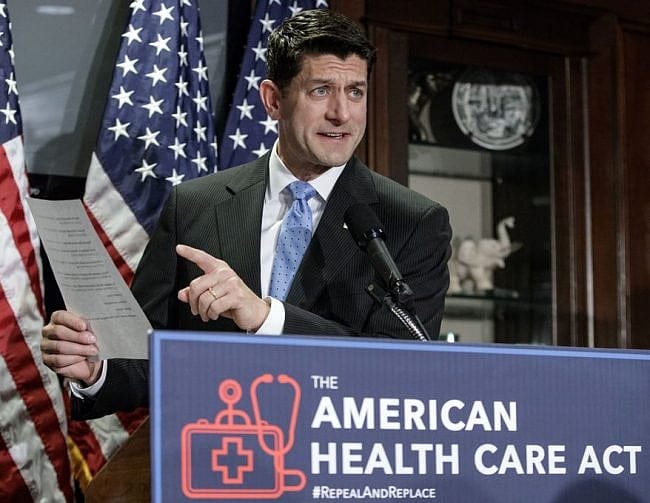Ryan Health Care Bill A Good Idea for Massachusetts?

Leading Massachusetts federal, state, and local officials were rallying support this weekend against efforts to repeal Obamacare and replace it with a bill that Republican leadership hopes will pass the U.S. House of Representatives this week.
The American Health Care Act, as the Republican plan is titled, may not garner a single vote from the Massachusetts delegation, or any Democrat in Congress, but there are those in the Bay State that support it.

